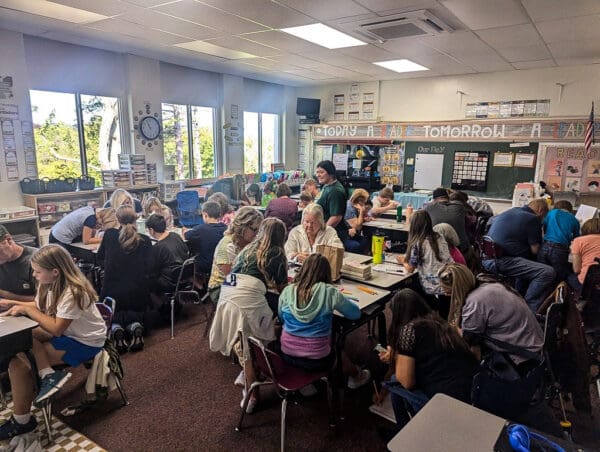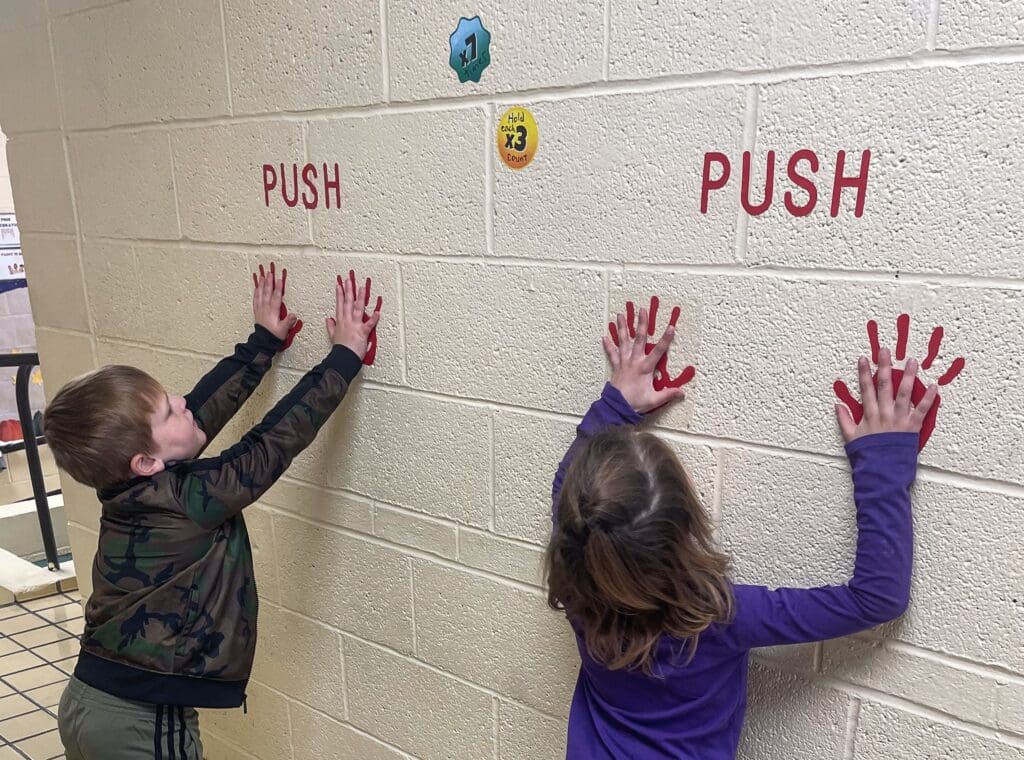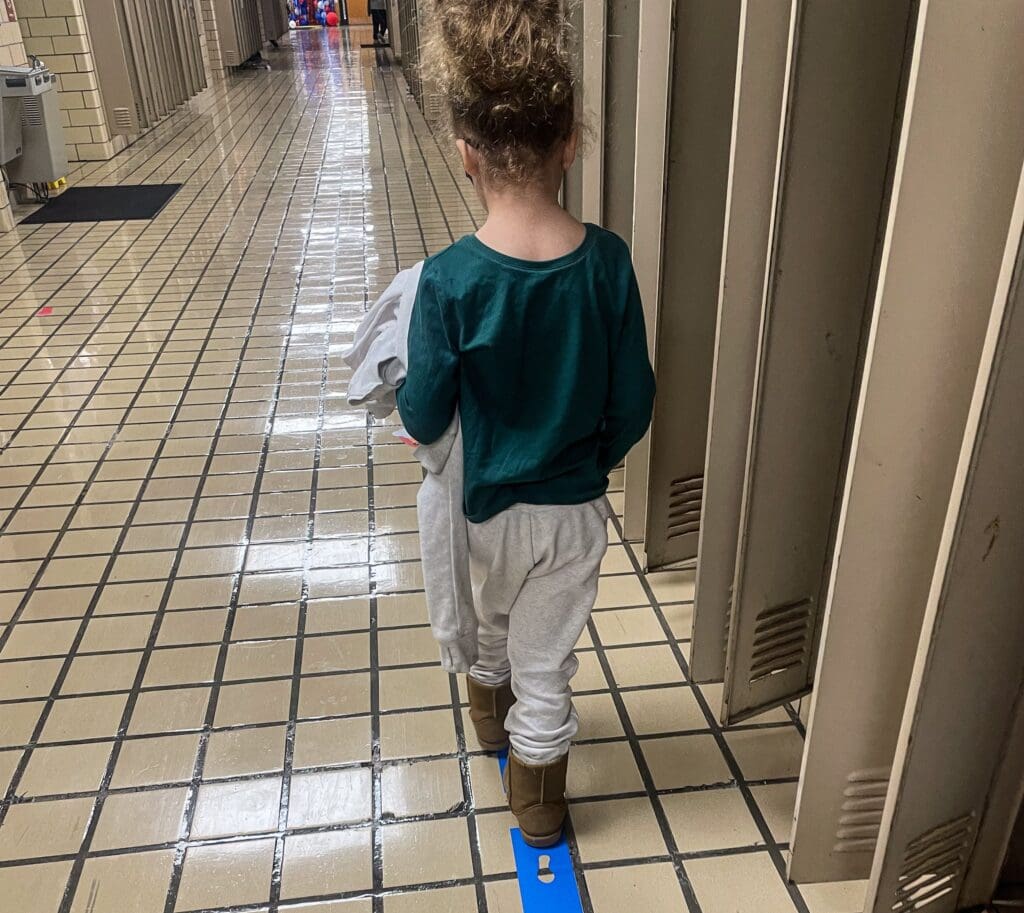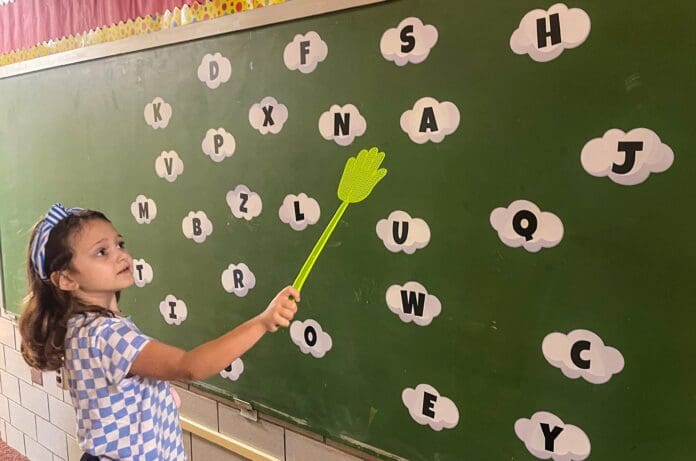“IEP” is a very popular acronym right now when it comes to education in Brooke County, and that’s because it stands for “Individual Education Plan.”
Brittany Kocher is the director of special education programs in Brooke County Schools, and that includes educating individuals ages 3 to 21 and servicing as many as 585 students each day. The department, according to Kocher, also has expanded the past couple of years because of the number of students who are enrolling in first grade without any preschool or kindergarten experience on their transcripts.
“When those children come to first grade, it means they are entering without the skills that are taught to our kids on those levels, and that’s created problems with the pace of education in our first-grade classes,” Kocher said. “When our educators encounter those situations, they work with them to establish a program so they can get on the same levels with their classmates.

“The way education has evolved, preschool provides that early exposure to learning and how educators are now going about teaching our kids the skills they need to move on through the grades and the schools,” he said. “So, as we get started at the beginning of the year, they sit with the other students and are expected to participate with them, and they don’t know how. That’s sets them back, so our instructors have been working diligently with those students to get them caught up as quickly as possible and that’s where the IEPs come into play.”
Kocher reports that she and her staff members also encounter children who arrive at preschool who need to learn how to prepare for an average school day so they do not disrupt the learning process for their classmates.
“We are seeing a significant number of kids are who coming to school with behaviorial struggles, and the intensity of the behavior has really increased,” Kocher said. “We’re seeing that issue with four-year-olds, and they are the youngest who come to us for pre-school, and we’re looking at a number of reasons for it.
“The drug epidemic has impacted everyone because it seems as if everyone you talk to about it has had a friend or a family member who has encountered issues. In some cases, it could be the person you’re speaking with because these drugs know no boundaries,” she said. “The epidemic also has had a horrible impact on families and how a family traditionally functions with a mother and a father because we’re seeing a lot of children being raised by guardians and grandparents.”

Students First
Drug overdoses in the Appalachian region of the United States remained alarmingly high for more than a decade thanks to the opiate drug epidemic that started to make headlines in 2008.
Fortunately, Wheeling Police Chief Shawn Schwertfeger reported last week that the number of drug overdoses (182 to 114) and overdoses deaths (26 to 14) decreased from 2023 to 2024, and the federal Centers for Disease Control and Prevention has reported similar decreases in West Virginia and in some parts of the country.
That does not mean, however, the ripple effects of drug abuse have vanished from local school systems.
“Our children have been impacted by the drug epidemic for sure, and it’s everywhere across the country and that’s why public education has needed to adapt so the students don’t have to pay the price,” Kocher explained. “So, we’ve reacted by adding resources for those children like counselors and teacher’s aides who have specialized in children that young, and those staff members oversee the whole county, and they will work individually with the students who have come from those situations.

“We’re lucky to have the staff members we have because we’re able to pay attention to all of our students and not just those in our special education programs. You just don’t know where the kids come from these days,” she said. “We have a great community and terrific educators in our schools, and our kids are what’s most important every single day. This one-on-one personal contact makes all the difference to the kids because they know they can ask as many questions they want.”
Superintendent Dr. Jeffrey Crook, whose contract was extended by four years this week by the Brooke County Board of Education, has been pleased with the results to this point.
“Everything we do is about the success story because we do everything we can to give every student a chance for their own success story,” Crook said. “We have seen results already, and there’s a lot of work that takes place every day to have a positive influence on our students on every grade level. That’s how we know where they are in the learning process so they can be paced the right way.
“We have learned a lot about education over the years, so one thing we know now for sure is that every student learns differently, and every student learns at their own pace. That’s what we know for sure,” he explained. “That’s why we have IEPs (individual education plans) for our students so we can be sure they are exactly where they can be as long as everything is clicking the right way.”
The superintendent, initially hired in Brooke County in 2019, appreciates Kocher’s leadership and believes the school district is setting examples when it comes to addressing obstacles caused by social issues outside the classroom.
“One thing I have noticed about Brittany is her vision and where she wants to take our district’s special education program,” Crook explained. “And it’s because of her vision that we feel we’re preparing very well for the future and for what our kids will need from our programs here in Brooke County.
“A lot has changed through the years as far as how prepared our kids are coming to us as early as kindergarten, so we’re preparing to help them get up to speed so they can continue as the same pace,” he said. “Our eyes and ears are always open, and it’s thanks to Brittany and the people in her department that we’re where we are today.”


